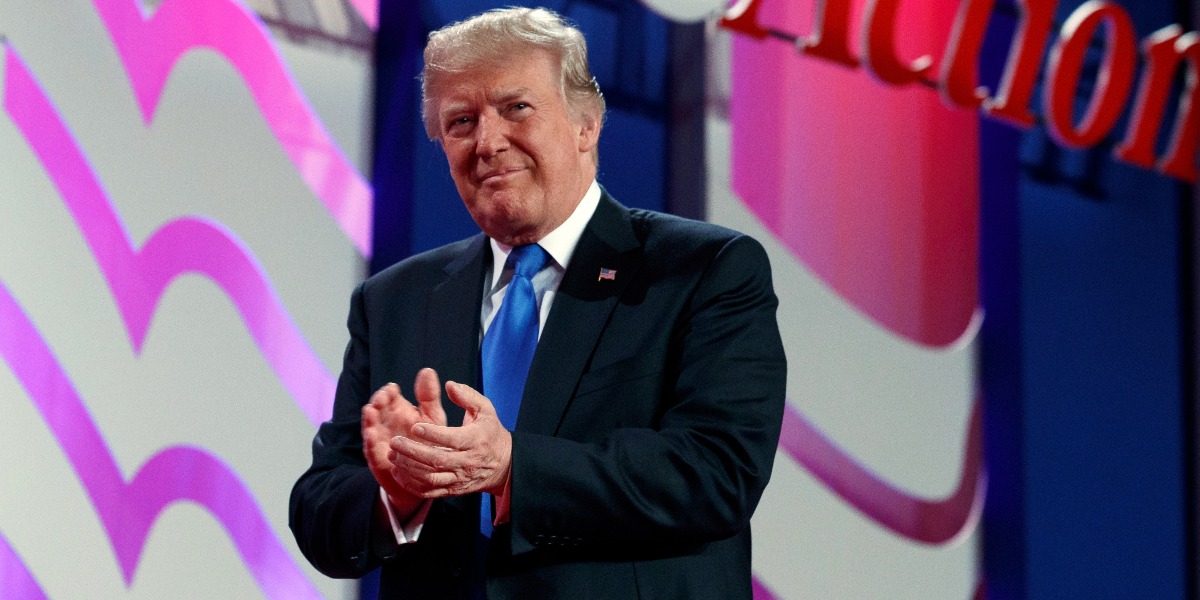Polls showed a tight race going in, but the well-connected former lobbyist Ed Gillespie lost to Democrat Ralph Northam Tuesday. In a tidal wave that should trigger serious soul-searching among Republicans across the nation, Virginia state Republicans lost a nearly two-to-one majority in the House of Delegates, and Democrats have a long-shot chance of being able to control that House in the first time in a generation, with several seats too close to call Wednesday morning.
Videos by Rare
“Flipping 14 seats from red to blue in VA is the biggest Democratic pick-up since 1899,” observed Jessica Post of the Democratic Leadership Congressional Council. And that wasn’t all — Democrats swept across the nation, winning the governor’s race in New Jersey and seats in the Washington state Senate and Georgia House; they also expanded Medicaid in Maine.
RARE POV: Democrats shouldn’t get too overjoyed over Tuesday night
If the national Republican Party wants to win in the future, it needs to take this moment to reexamine its values and priorities.
Here’s a few guiding principles the party should consider:
1. Lobbyists Need Not Apply
If there’s one thing that the popularity of Bernie Sanders and Donald Trump and the national zeitgeist of 2016 have taught us, it’s that lobbyists and other well-heeled politicos need not apply. Gillespie’s lobbying past only hurt him in this election. This isn’t the ’90s and early aughts, where one’s competence is measured by how “well connected” one is to K Street and corporate America. The phrase “drain the swamp” caught on because people are equally fed up with K Street and Wall Street and feel like they’re being under-served and flat-out ignored by both.
2. Parties Need To Stand for Something
This applies to both parties equally — and both seem to be adrift in this respect. From healthcare to tax reform to international intervention, the problems Congress has had moving any major policy forward this year are multiplied when we look at the future. In 2017 and going forward, what do Republicans stand for? For what causes will the party go to war?
At one time, the Republican Party, and especially the Tea Party movement, stood for lowering debt and for fiscal responsibility. But between “establishment” Republicans’ long embrace of the military-industrial complex and Trump’s endorsement of big government programs (particularly regarding health care), voters that want a small, fiscally responsible government don’t have a lot of options.
Trump’s “America first” jobs and trade message doesn’t resonate in purple states like Virginia that have a lot of white-collar and government contractor employees, a massive amount of international exports and an unusually large immigrant community, which makes up over 12 percent of the state’s population.
3. Candidates Need to Believe in Something
Just as important as a party that fights for something, candidates need to have real beliefs. On abortion, as with many other issues, Gillespie had a more nuanced stance which might have hurt him with single-issue voters. Whether your issue involves abortion, health care or taxes, you want your candidate to wholeheartedly believe in, and fight for, that cause.
Candidates with strong beliefs motivate voters to go to the polls. Muddy and wishy-washy positions are a lot less likely to motivate anyone, especially the candidates, who likely won’t fight for positions they don’t really believe.
When candidates truly believe something, they are willing and able to work with anyone — including the other side. Rep. Tulsi Gabbard (D-Hawaii) and Sen. Rand Paul (R-Ky.) are good examples of this. Instead of being tarred and feathered for “selling out” and compromising, they’re able to advance causes like criminal justice reform and foreign policy realism. This is the sort of cooperation and compromise that voters like to see — not a collapse of values, but a recognition and pursuit of common goals.
RARE POV: Instead of fighting over who screwed who in 2016, Democrats need a plan for 2018
4. The Trump Cult of Personality is Toxic
The national Republican Party has been mired for months in Trump’s toxic cult of personality. Personality cults are not long-term political strategies, as Democrats discovered with Obama; and Trump, who suffers from a historically low approval rating, is particularly noxious. An ABC exit poll found that Virginia voters said by a 2-1 margin “they were casting their ballot to show opposition to Trump rather than support for him. In New Jersey the margin was 3-1.”
Even in 2016, Trump under-performed in nearly every Senate Republican race. In a mystifying choice, Gillespie ignored all this and embraced Trump’s tone, even using Trump robo-calls in the last few days before the election.
What remains to be seen is whether Tuesday’s results will trigger some much-needed introspection about what role Trump and his policies should play within the national Republican Party, or if partisans will just circle the wagons.



